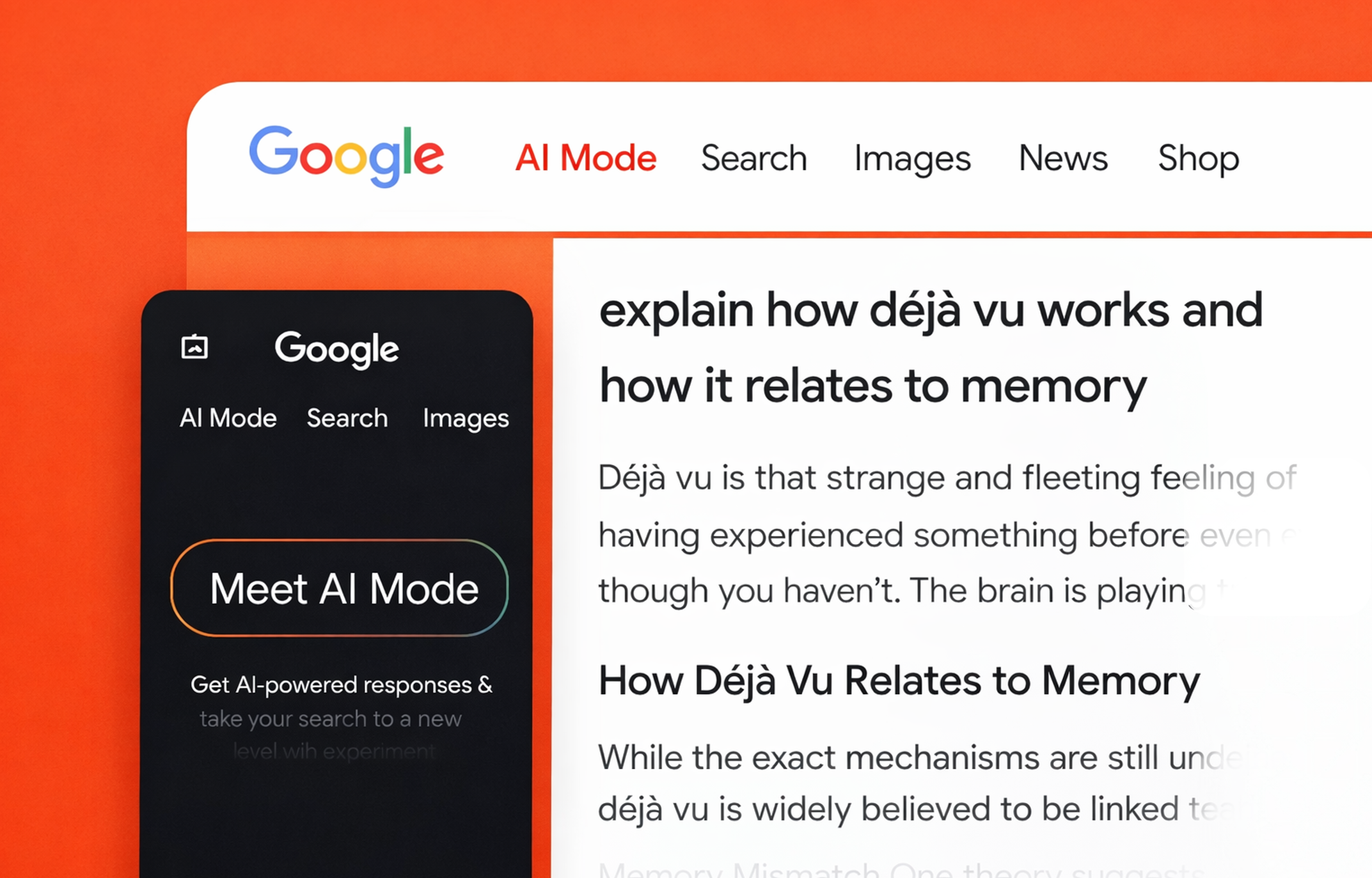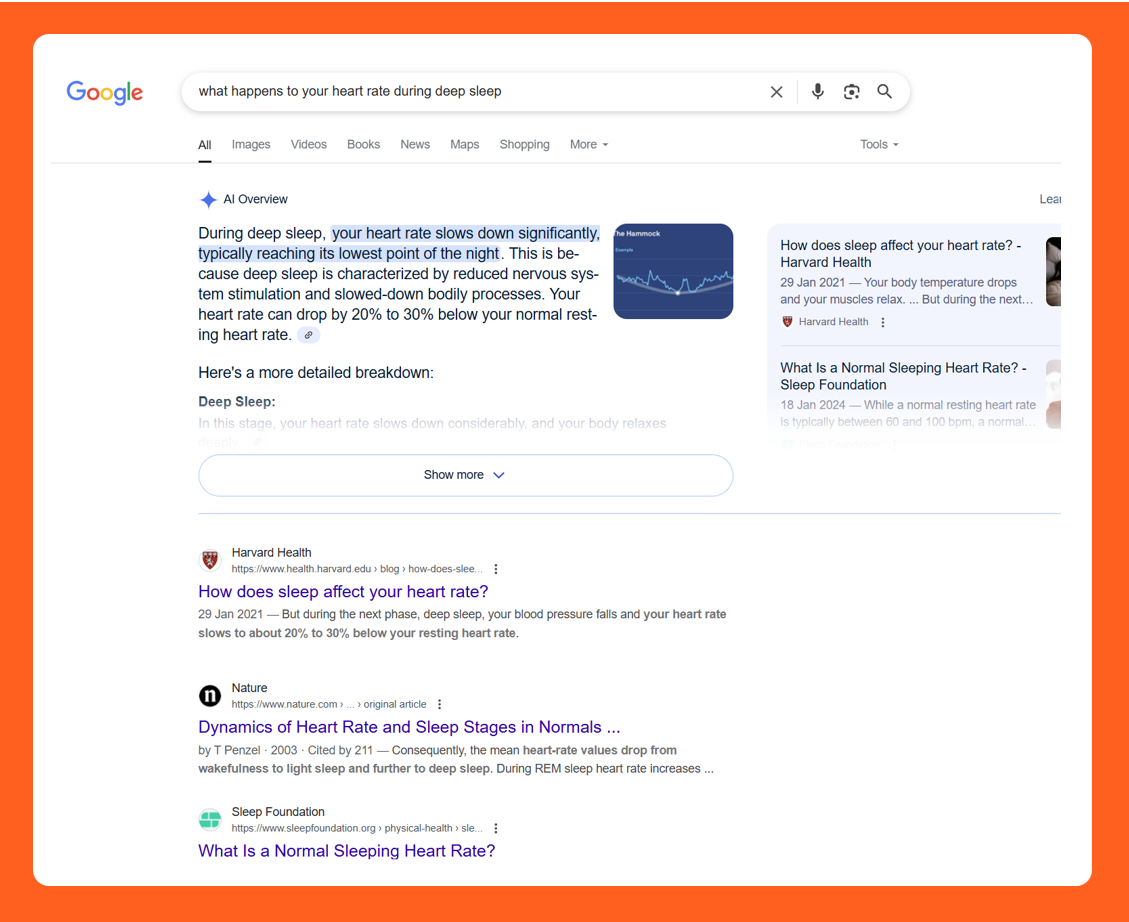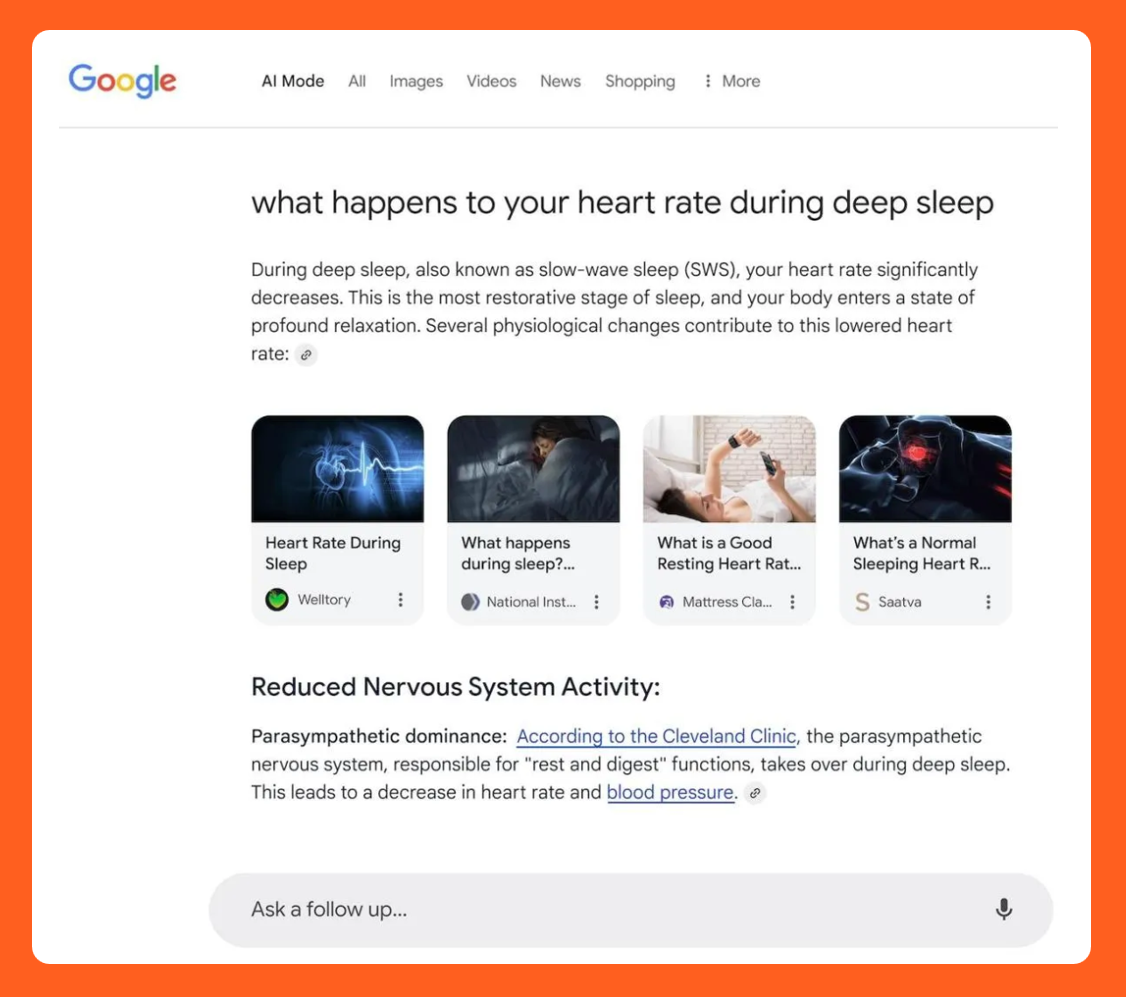What Google AI Mode is and why it matters for SEO
Google Search is changing. Again. This time, it's a shift that feels different. Not just another feature update like featured snippets or AI Overviews. This one changes how people interact with search itself.
It's called AI Mode.
What is Google AI Mode?
Google AI Mode is part search engine, part chatbot. It lets you ask big, multi-part questions and gives you conversational, AI-powered answers.
It builds Gemini (formerly Bard) straight into Google Search. You don’t need to go to a separate app or site.
It looks and acts like a chatbot right inside your usual Google results. You ask a question, it gives you an answer - one that's pulled together from various sources across the web. Then you can ask follow-up questions to dig deeper.
Right now (May 2025), it's only available in the US to those who are signed into their Google account and have it enabled via their Google settings. For those of us in the UK, all we can do is wait and watch while the SEO industry starts to panic- with some good reason.
How is this different from Google Gemini or AI Overviews?
Gemini is the standalone AI assistant. Think of it like ChatGPT - it lives in its own app, can integrate with Gmail, YouTube, Google Docs and other tools, and is designed to help you with tasks like writing, organising, and researching.
AI Overviews are the longer, summary-style responses that sometimes appear at the top of Google Search results. Standard blue link organic listing then sit directly underneath in most instances, which you can see in the example below. AI Overviews have been around since 2024 in the UK. They're designed to answer questions in more detail than a standard featured snippet. If you've Googled something and seen a full paragraph with links, bullet points and a ‘show more’ button at the top, that’s an AI Overview.
AI Mode takes this even further. Instead of just giving a single answer in a small section at the top of the results screen, it takes over the whole screen, and it lets you have an ongoing chat. It’s like having Gemini built directly into your Google searches, ready to give more thoughtful, layered responses that you can interact with. You can still switch back to classic search, but AI Mode is clearly the direction Google is going:
Why does this matter for marketers and SEOs?
AI Mode indicates a shift in focus away from traditional search results, although to what extent remains unclear. For now, users can still access classic search alongside AI Mode. But over time, SEOs need to prepare for what this shift could really mean:
More zero-click searches
Fewer organic visits to websites
Reduced visibility in the SERPs
And if that wasn’t enough, Google has confirmed that AI Mode can't currently be tracked separately in Search Console. That means if your traffic drops, you won’t know whether it’s due to AI Mode, a ranking change, or something else entirely.
Adding to the concern, AI Mode appears before the traditional ‘All’ tab on Google. While ‘All’ remains the default view, this shift in placement signals that Google sees AI Mode as central to the future of search.
What can you do about it?
You adapt. That’s what good marketers and SEOs do. Here are a few places to start:
Prepare for less organic traffic - For most websites, organic search has been the biggest traffic driver historically. That could be about to change. AI answers are pushing links out of view, or removing them altogether. Make sure your managers and stakeholders understand that this could mean a downturn in organic performance.
Optimise for brand mentions - If your brand shows up in AI responses, even without a click, that matters. People notice. Brand visibility and mentions are becoming a new kind of SEO metric.
Rethink what good looks like - As click-through rates drop, you’ll need to consider new ways of measuring success - like citations and mentions, visibility in AI-generated content, or branded searches.
Think in questions and topics, not keywords - AI Mode is conversational, so your content needs to be too. Be useful, thorough and engaging in tone.
Build trust and authority - Google's AI pulls from sources it sees as credible, still favouring those that demonstrate EEAT - Expertise, Experience, Authoritativeness, and Trustworthiness. Keep showing up with quality content, and you stand a better chance.
Stay on top of AI developments - Google will likely one day use AI agents to book trips, buy products, or interact with your site directly. It’s early days, but staying on top of these changes is key.
Redefining SEO
There's a lot of concern in the SEO industry right now, and rightly so. AI Mode is the biggest shift in search since Google launched. It's not the end of search optimisation - but the game is changing. The fundamentals still matter - clear and useful content, trusted sources, and strong branding. But how you show up in search is going to look different.
The marketers and publishers that succeed won't be the ones trying to hang onto the past. They'll be the ones who learn fast, adapt quickly, and rethink what search engine optimisation really means in this new landscape.



